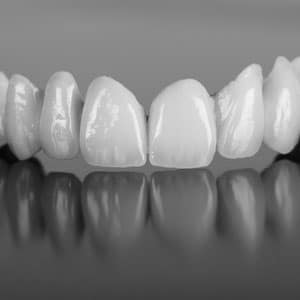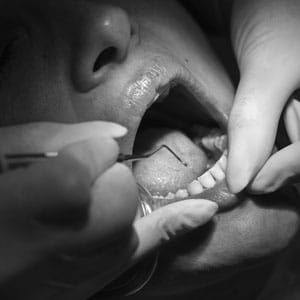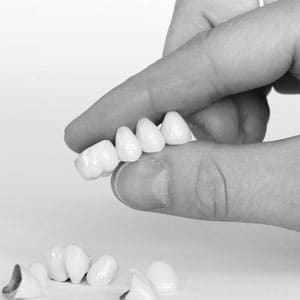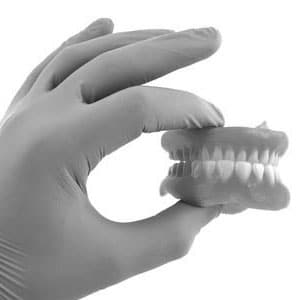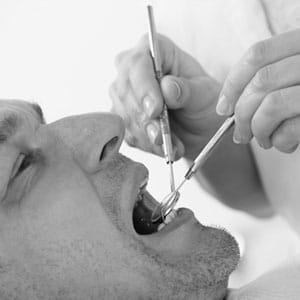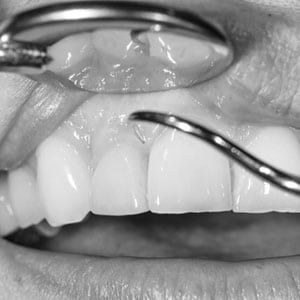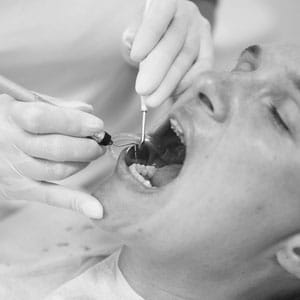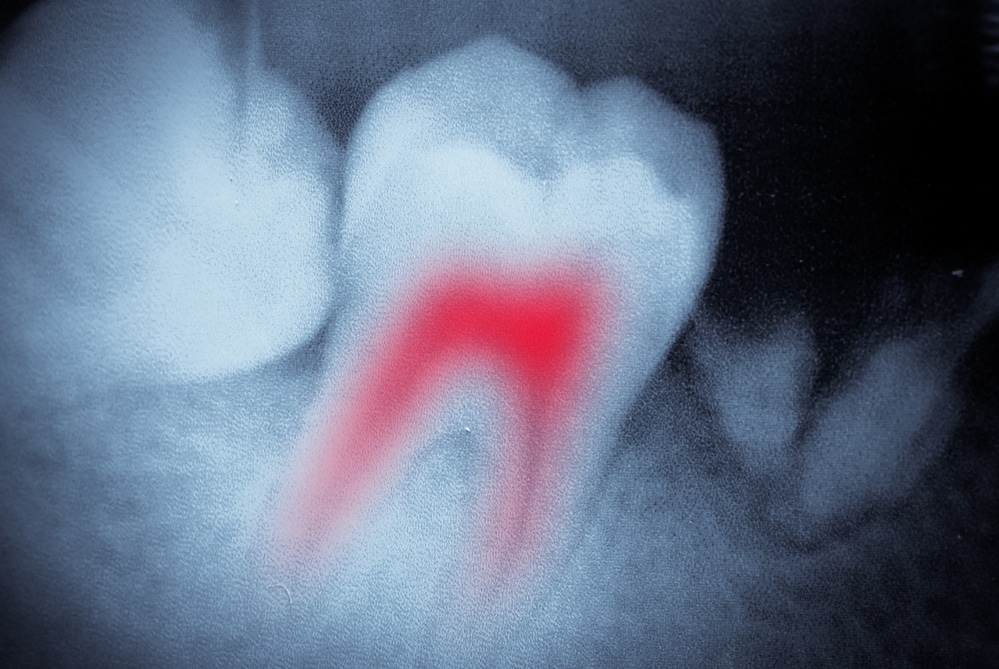
Root Canal Therapy In Lynnwood, WA
We are Conveniently Located In Lynnwood, Also Provides Cosmetic Services To Everett, Marysville, Redmond, Shoreline, Bothell, Edmonds, And All Neighboring Communities.
During root canal therapy, Dr. Lois Lee removes the infected, damaged tissues from within the tooth. We may also need to reshape the root canal system. We fill the tooth with a medicated material, which helps to alleviate pain and prevent further infection.
Finally, our dentist will cap the tooth with a restoration such as a dental crown to restore its structure and shape. We can typically complete a root canal in Lynnwood, WA, in only one or two appointments at our office, and our team will make certain that each visit is as comfortable as possible. To learn more and to set up your next visit to Meadowdale Dental Clinic, we welcome you to contact our office today.
What Is Root Canal Therapy?
Choosing to do the root canal allows the patient to repair, instead of remove their tooth. This option is a bit lengthier than an extraction procedure but the long term benefits of keeping the tooth in service may outweigh the time and treatment needed to complete a root canal.
There are a number of reasons why a root canal will be warranted. Often, a large cavity can cause the pulp (or the inside) of the tooth to get inflamed. If inflammation is present, removing the irritant (decay in this case) usually relieves the tooth. However, if the decay extends into the pulp, then a root canal is the treatment of choice.
Infection that has made its way into the pulp is acting as a pathway for bacteria to travel into the jawbone and this must be immediately addressed. When this occurs, pain and swelling can ensue. Root canal therapy cleans out the canal spaces where the pulp resided, and seals off the pathway of infection and allows the body to heal.
Root canal therapy can be minimized when patients visit their dentist regularly for check-ups because cavities are often “silent” until it is too late. Early detection and prevention are thus the keys to minimizing your risk of abscess and root canals. Before undergoing root canal therapy, it is important to understand the steps involved in the procedure.
Call our Office at (425) 742-9609 Today!
Root Canal Therapy Steps
If you experience a sudden and excruciating toothache, you may be experiencing a symptomatic, abscessed tooth. This is when the infection from your tooth has travelled into the jawbone. In this situation, your dentist will immediately prescribe antibiotics to bring your level of infection down. This is because a high level of infection will make it difficult to get patients numb. After a few days of antibiotic therapy, you will be ready to undergo your root canal treatment.
In cases where the abscess is detected early enough, you may not need antibiotics and may be scheduled directly for the root canal treatment. If you have any concerns, fears, or anxiety, please be sure to communicate this without hesitation to your dentist so he/she can help you. There are sedation options for patients which can help them through the treatment.
During the root canal appointment, Dr. Lois Lee will first numb the tooth and the surrounding area with a local anesthetic to ensure you feel no pain. Some patients feel a bit of pressure, but this is normal. Please be sure to always communicate with your dentist if you have any discomfort during the procedure.
Once you are numb, a non-latex drape is placed over your tooth to prevent you from swallowing the chemicals used to clean out the infection and to keep oral bacteria from re-entering the pulp chamber as it is being cleaned out.
After the drape is placed, Dr. Lee will create an access to the infected pulp chamber. She will also remove all of the surrounding decay in order to assess the extent of remaining tooth structure left. Once the access to the pulp chamber is created, small instruments will be used to clean out the infected tissue that is lining the walls of the chamber and canals. This is a rather boring procedure for the patient as the dentist must first establish the number of canals in your tooth.
Then she must assess the length of each canal and may stop to take a radiograph in order to correctly determine each canal’s length. Once the number and length of the canals are determined, Dr. Lee must cycle through a sequence of scraping/disinfecting the canal walls to ensure maximum removal of bacterial adhesions and any necrotic/infected tissue. Once the tooth canals are cleaned, then your tooth is filled with a material called gutta-percha.
This material is essentially rubber from the rubber tree, rolled into little sticks in the shape of your canals. The gutta percha is often heated and placed into the canals to ensure a good seal. After the canals have been sealed, she will then place a material called a build-up over the access hole and area of lost tooth structure. Due to the fact that root canal treated teeth are often accompanied by extensive tooth loss, a crown will be recommended to further protect the tooth.
Discomfort after a root canal procedure is normal and is well managed by over the counter pain medications such as Tylenol or Ibuprofen. Any discomfort that persists or is not addressed through over the counter medication should be communicated to the dentist immediately.
Call our Office at (425) 742-9609 Today!
Root Canals for Children
Children’s teeth (primary teeth) are much more susceptible to decay and bacteria. Primary teeth are softer in material and when they become infected, can be destroyed faster than adult teeth. For this reason, early detection through regular check-ups is very important.
If this infection spreads to the “pulp space” below the surface of a tooth where all the nerves and soft tissue lie, a pulpotomy or a baby tooth root canal will be recommended. It is very important that baby teeth are not prematurely extracted so baby teeth must be saved at all costs in order to prevent space closures and permanent tooth impactions due to early loss of the baby tooth.
During a pulpotomy procedure, the infection is removed in the same fashion as an adult’s infection would be removed. However, baby teeth and adult root canal procedures are slightly different in that pulpotomies are generally faster procedures than adult root canals procedures.
This is because in children, only the pulp chamber must be cleaned out as the canal spaces will heal on their own. (Contrast this with adult teeth where the canals must be cleaned out as the standard of care.) Both adult and baby teeth do, however, commonly require crowns to protect the tooth after the root canal treatment.
Infection in a baby tooth is important for the health of your child’s developing, permanent, adult tooth. The adult tooth enamel is forming just below the baby tooth and infection in the baby tooth can compromise the heathy development of the adult tooth. Therefore, taking care of baby teeth is very important for your child’s permanent teeth.
Aftercare
Your dentist will communicate with you about the side effects you may feel after the procedure. Your senses can be heightened by cold and hot foods and beverages. It’s a good idea to stay away from these foods and liquids untill after the healing process. Be sure to stay away from hard foods as well until a crown is placed.
Many dentists will wait for a later appointment to insert the dental crown on top of the procedure site. It is important to go back to your dentist to have the crown placed. The dental crown is the final step in your root canal therapy procedure and is often needed to cover the tooth to stop any debris or bacteria from finding their way back into the canal space. If this occurs, a second re-treatment root canal therapy will be warranted and the success rate of the second procedure drops.
Costs of Root Canal
Be sure to stay updated on your dental insurance benefits as your whole procedure could be covered. Many dental plans cover basic appointments such as cleanings and diagnostics but the restorative coverage can vary greatly for larger procedures such as root canals.
A dental plan is considered a legal contract between you and the insurance provider. The dental office often helps patients obtain these estimates but because the office is considered a third party, the exact amount can never be known until claims are processed.
Therefore, these estimates must be considered good ball park numbers that are often helpful in estimating a patient’s true out of pocket costs. Be sure to ask the dental office about your plan’s coverage as staff is often knowledgeable in navigating the different dental plans.
It is important to visit your dentist twice a year to ensure optimal oral health. It has been proven that a healthy smile can contribute to a healthy body. Don’t wait until something hurts! Give Dr. Lois Lee a call today (425) 742-9609 to see how she can help you out with your Dentistry needs. We are more than happy to talk further with you.
Meadowdale Dental Clinic, conveniently located in Lynnwood, also provides root canals to Everett, Marysville, Redmond, Shoreline, Bothell, Edmonds, and all neighboring communities.


